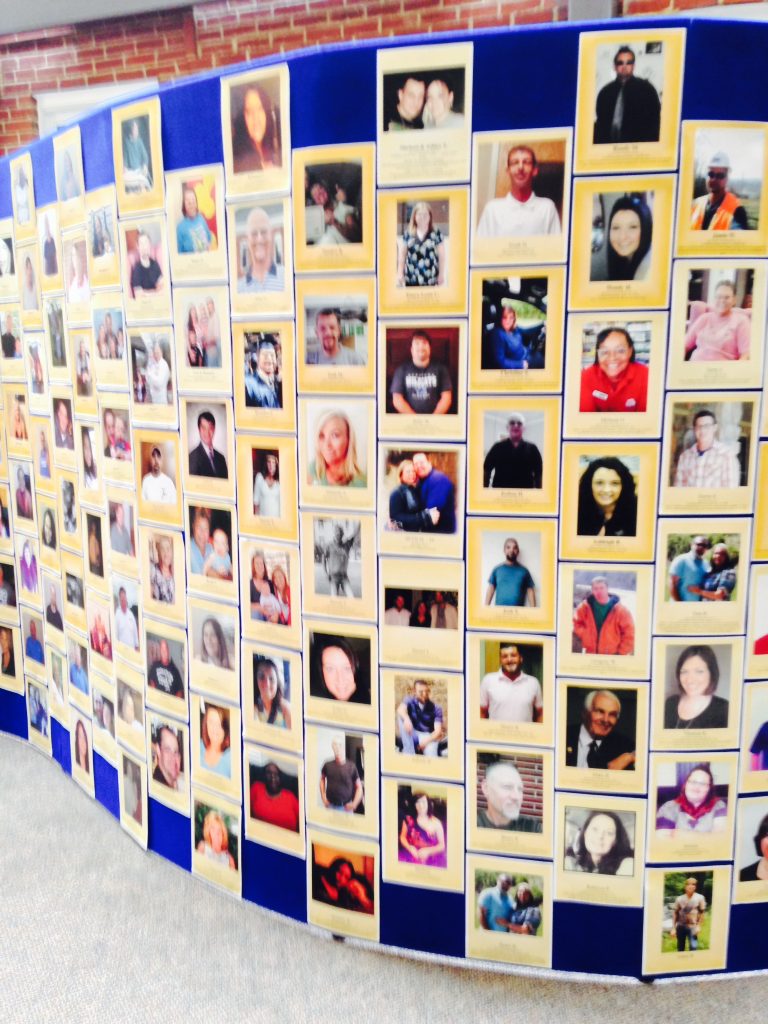So you are reading this and you are interested in running or being a part of a Facing Project, but maybe you’re not sure where to start. Where does a Facing Project live?
We’ve seen projects organized by colleges, high schools, and nonprofit organizations. In each of these, the projects can take different shapes.
In a perfect world, each project involves partners from campus, community, nonprofits and business, but each project has to start somewhere. Here are six examples of where projects have launched.
Campus-Based
Student Organizations:
A project can be a collaboration of multiple previously existing organizations or students can form their own Facing Project chapter on campus. Two good examples of this include UCLA and Washington & Lee University.
We met UCLA students at the 2014 Impact Conference where we keynoted. The students eventually formed a Facing Project chapter. Their first project was Facing Access to Higher Education, their second Facing Mental Health, and now they are recruiting leadership for their third project.
A student from Washington & Lee University heard Kelsey and J.R. speak at the Bonner Summer Leadership Institute, and led the charge with the help of her Bonner staff advisor on one of the most powerful and important projects we’ve seen: Facing Sexual Violence.
Classes:
A Leadership Studies course at Kansas State University led Facing Hunger.
Here’s what faculty member Lori Kniffin said about the experience:
“The Facing Project has numerous learning opportunities for students. Through The Facing Project, they can get to know individuals, organizations, and existing systems currently address the issue within their college town, and can actively exercise leadership to share stories of the unheard voices.
Our Facing Hunger books are now used in the Introduction to Leadership Concepts course to help students understand the issue of hunger prior to engaging in service. Another Leadership in Practice course read stories from the book and compiled a video highlighting four stories. The partners we collaborated with continue to work with those experiencing hunger every day. Our students exercise leadership for their own purposeful passion.”
Ball State’s Ingelhardt Scholars–a group of freshman and sophomore students who are selected to serve in this one-year, one-credit experience–have organized Facing Projects each of the last two years. They’ve led projects on Depression and Cancer and their professor Dr. Adam Kuban is now gearing up for year three.
Here’s a video from Facing Cancer that the class put together:
Department:
The President’s Office at Union College launched the Facing Addiction project, which culminated in an event that was attended by US Senate Majority leader Mitch McConnell. (J.R. wrote about the experience here.) The Office of Community Engagement is running the school’s second project – Facing Addiction Phase II.
At Davidson College, the Chidsey Center for Leadership Development led Facing Perfectionism that focused on college students telling each others stories of anxiety. Narratives collected included themes of eating disorders, depression, and family conflict, and the stories were used to create conversations, and solidarity, among Davidson students on often taboo subjects.
Community
High Schools:
High schools are new territory for Facing Projects. We recently added a board member who is a teacher to help us figure out how the model best works in high schools. That said, a few amazing teachers and faculty have stepped forward to test the model.
La Lumiere, a private school in northern Indiana, is leading a project on Anxiety.
Milton Union HS and Dayton Regional STEM School paired two English courses together via Skype. Students acted as both storytellers and writers.
Nonprofits:
Nonprofits are almost always involved in projects and sometimes they lead them, such as the very first project Facing Poverty led by TEAMwork for Quality Living in Muncie and Facing Sex Trafficking: Atlanta’s Dirty Little Secret. Others have included multiple nonprofits working together alongside colleges, such as Facing HOPE in Rome, Georgia.
Business:
We’d love to see a business leverage its resources and employee-talent beyond “Days of Service” and run a full-fledged Facing Project working with local schools, colleges, and nonprofits. So far businesses have only contributed gifts-in-kind and dollars to projects, which are much appreciated, but a deeper level of private sector engagement could be very powerful.
If you feel like a Facing Project would be a good fit for your community, please download our info guide and let’s start a conversation.


